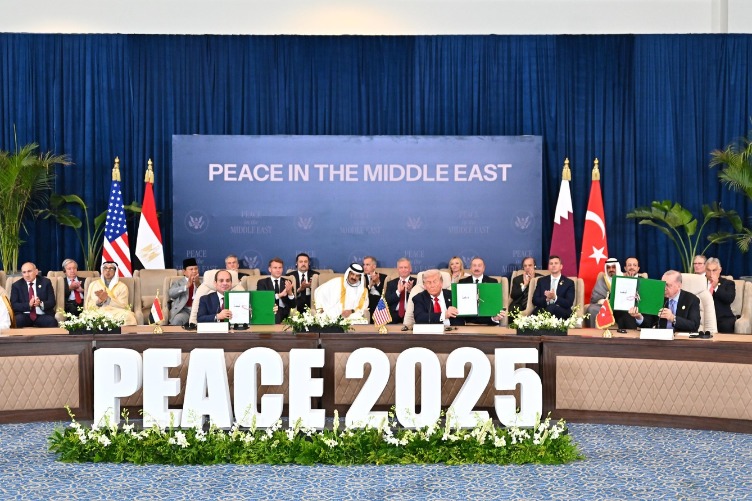America's toxic politics clear enemy of itself

What on Earth, the world wonders, can possibly explain the evolution of the lurid political cabaret now playing continuously in Washington?
As it happens, history offers some clues.
What became the Western Roman Empire lasted for just over 500 years, from 27 BC to 476 AD. During this time, countless political misadventures were encountered and addressed, sometimes cleverly and diplomatically, often violently.
Juvenal, the satirical Roman poet, coined the expression "bread and circuses" to argue, around 100 AD, that this is what Roman citizens came to crave from government as those citizens abandoned their responsibility to monitor actual government performance.
This popular longing for distractions also suited the imperial administration uncommonly well, as Roman governance was far from matchless at the time, Juvenal wrote.
Appropriately, this is what the term has come to mean in the modern political context.
The Cambridge Dictionary defines "bread and circuses" as "activities or official plans that are intended to keep people happy and to stop them from noticing or complaining about problems".
America has long been a trendsetter in the modern use of bread and circuses as a primary vote-shaping tool, often also described as "barnstorming". But, in the past, this sort of audacious political crusading by the likes of William Jennings Bryan and Theodore Roosevelt, for example, was typically confined to formal campaign periods. It follows that the way the current US administration has embedded a continuous political charade into the central operation of the American political regime from day one of the current US administration is without peer.
First, consider some relevant background problems:
The US national debt has reached 120 percent of GDP, or approximately $37 trillion, which translates to over $108,000 for every person in the total population of 340 million.
Interest on this debt already exceeds the cost of America's grotesquely inflated annual military expenditure.
The Congressional Budget Office estimates that the administration's recently enacted "One Big Beautiful (tax cutting) Bill" will add $5 trillion to the national debt over the next decade.
That debt is predicted to keep increasing to 156 percent of GDP by 2055, according to the Peter G. Peterson Foundation.
According to the same foundation, 43 million — around 13 percent of the US population — live in poverty, and about 34 percent of that total live in deep poverty.
Over the last 60 years, the number of American 30-year-olds who are both married and homeowners has dropped to 13 percent from over 50 percent.
The recent evisceration of medical, educational and social services for the least well-off in the US is now biting.
No other Group of Seven country has a murder rate that comes close to the US, which remains in the top 10 list of countries with the highest murder rate worldwide, according to the World Population Review.
The extraordinary and continuing "Tariff Tantrum" (as described by The Economist) is set to cramp growth in jobs and the economy and lift prices over the next two years, according to many US and international economists.
If those price rises lock in higher inflation, then US interest rates will stay close to present levels or even rise — at least as long as the current Federal Reserve membership remains in place.
Mistrust in the US dollar acting as the world's reserve currency is growing insistently.
Then there is the placement of the US on a global, endangered rule of law watch list.
Plus, all of this is unfolding within the ambit of the principal cause of galloping American anxiety: the rise of China and the inexorable shift to a multipolar world.
This is a partial list, only, but it clarifies how profound the problems facing America are. So, how might one divert the voters from paying too much attention to this grim catalog?
The essence of the US administration's barnstorming is that it is intense, recklessly mendacious, often vindictive, and, above all, continuous. Here is a sample of some key components. They all work to distract attention from any significant consideration of serious problems (see above). And, typically, they actively polarize the electorate and pander to existing angry predispositions:
Regular, broadcast Oval Office intimidation, humiliation and choreographed appeasement sessions involving foreign politicians.
Luridly orchestrated tariff attacks on particular, freshly stigmatized foreign jurisdictions, including Brazil and India.
Staging a UFC (Ultimate Fighting Championship) contest at the White House in 2026 to mark 250 years of American independence.
Launching a "war on arithmetic" by firing the head of the Bureau of Labor Statistics, using the evidence-free accusation that new, politically awkward statistics were rigged.
Oscillating threats to sack the chair of the Federal Reserve Board.
Savage strikes on leading US universities and scientific institutions to shut down fundamental operating freedoms and cut back key services.
Rounding up and heavily punishing — and imprisoning — students in the US for expressing their views over the Gaza operation and related matters.
Organizing mass deportations, with gratuitous violence and scant or zero due process.
Giving semiformal, frightening names to new, immigrant-incarceration facilities, like "Alligator Alcatraz" and "Speedway Slammer".
Loudly advancing plans to shape coming elections through partisan redistricting and other menacing measures, according to the Brennan Center for Justice at New York University.
Turning US cities, deemed lawless by the White House, into cities occupied by federalized law enforcement units — like the National Guard — accompanied by threats to use US military forces in the same way, against US citizens (already trialed in Los Angeles and underway in Washington, DC).
Bolstered (as the Washington Post recently reported) by a new Pentagon plan to create a specialized military "reaction force" to put down civil unrest in the US.
As this exceptionally destructive, willfully promoted, political burlesque has unfolded, the US administration regularly blinked and made some anxious adjustments. But within no time, it has moved back to embracing and amplifying its essence. Regular announcements of claimed new wealth gains for America have emerged, arising, for example, from: crypto-currency projects, special protection payments from Nvidia and AMD and, not so long ago, via a $400 million gift for presidential use of a hugely luxurious Boeing 747 aircraft, from the government of Qatar.
It is fair to say that America was once measurably self-possessed. No longer. The US is now acutely self-obsessed and emphatically self-harming.
Precipitous political vulgarity in elevated places can certainly distract (and hold) the attention of many voters. But it is a clear enemy of collective, rational human progress. It is why America's toxic political theater is so centrally bad for the US, and for the world by extension.
The author is an adjunct professor on the faculty of law at Hong Kong University.
The views do not necessarily reflect those of China Daily.

































